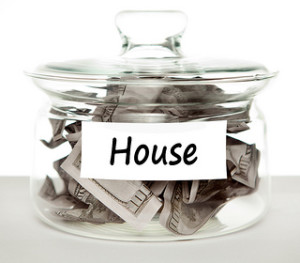When to Transition From Renting to Buying
This guest post is written by Jennifer Riner of Zillow.

However, rent prices are more expensive than ever, prompting many lessees to dip into their savings and apply for mortgages without second thought. After all, owning an affordable home is a long-term investment that hopefully presents returns at resale, whereas renting only helps the landlord build equity.
The American dream of buying a home and make the transition from renting to buying starts with sensible financials, but homeownership isn’t for everyone. Ask the following questions before breaking a lease and moving money around to support a down payment.
Is a mortgage affordable?
Generally, putting down at least 20 percent of a home’s purchase price with a loan covering no more than 80 percent is recommended when making the transition from renting to buying. Loans of more than 80 percent of the home price often require homeowners to pay additional insurance to protect their lenders’ investments, called private mortgage insurance.
Credit scores significantly impact interest rates offered to borrowers, even when buyers provide heftier down payments. Typically, credit scores under 680 are red flags to bankers. They might agree to financing, but usually with increased interest rates or less favorable terms.
Prospective buyers should raise their credit scores before applying for mortgages to receive optimal offers. Individuals with credit scores above 750 receive lower interest rates, allowing them to put more money toward their principals and build their equity faster.
When researching the transition from renting to buying, don’t forget about closing costs, or mandatory fees charged by lenders and third parties, which typically range between 2 and 5 percent of a home’s purchase price. Some homeowners can negotiate for their mortgage lenders to pay for closing costs, but unsurprisingly, the deal usually entails higher interest rates that cost borrowers more over the life of their loans. Sellers sometimes agree to cover these costs, especially when they receive their initial asking prices without bargaining.
Who does the current market favor?
Determining the financial benefits of making a transition from renting to buying requires an understanding of the current real estate market. In some locales, renting is inexpensive and therefore more cost-effective for the majority of residents unconcerned with building equity.
In most major metro areas, renting is the norm as it allows for more freedom. However, rents are currently at historical highs. In these rent-heavy cities, leasing becomes cost-prohibitive quickly and the price of a mortgage is more affordable than continuing to rent. The formula to determine the time it takes for buying and renting to equalize – and owning to eventually become cheaper than renting – is known as the breakeven horizon.
The breakeven horizon estimates the point at which buying a home becomes cheaper than renting. Renters looking for apartments in Dallas, for instance, face a median rental price of $1,244 per month. After only 1.1 years of renting in Dallas, buying becomes more financially beneficial than resigning a lease. Further, the median list price of homes for sale in Dallas is $249,000, which isn’t far from the national median of $211,400.
Dallas is much cheaper than a hot market like San Francisco, where the median list price is a staggering $947,000. Prospective Dallas homeowners, on the other hand, would only have to save $50,000, assuming a 20 percent down payment on a $250,000 purchase price, before beginning their home searches. To compare rental properties and homes on the market in Dallas or other areas, visit Zillow.
How much should homeowners save?
Spending every dime saved to buy a home and make the transition from renting to buying presents many issues. One is that working individuals should have substantial savings for emergencies. Layoffs, illnesses or other events usually require more than one paycheck to address.
Homeowners facing unexpected expenses might struggle to keep up with their home payments, and therefore go into default with their lenders, putting themselves at a high risk of foreclosure.
An appropriate savings goal for financially-minded homeowners is six months of expenses dependent on lifestyle. For example, an individual living on $5,000 a month would be wise to accumulate $30,000 in savings. After accruing six months of living costs, devote additional money to high-earning investments.
Keep in mind additional post-purchase costs, including homeowners association fees, utilities, landscaping and plumbing, among others. Also consider career and future plans when considering the transition from renting to buying.
Homeowners usually remain in one city long-term, especially if they want to receive returns on their investments. Owning a home is a serious commitment, which is why many choose to rent regardless of high rates and lack of equity – the sense of freedom can be priceless and not worth the transition from renting to buying.
Photo credit: Tax Credits.net via Flickr Creative Commons.



This is very timely. Our oldest is graduating from college and wants to buy a house. I’ll show her this article.
Good to hear, Stacy.
She’s lucky and smart if she can afford a house after graduating from college. A home purchase should hopefully allow her to gain equity and maybe make a profit someday. Good luck.